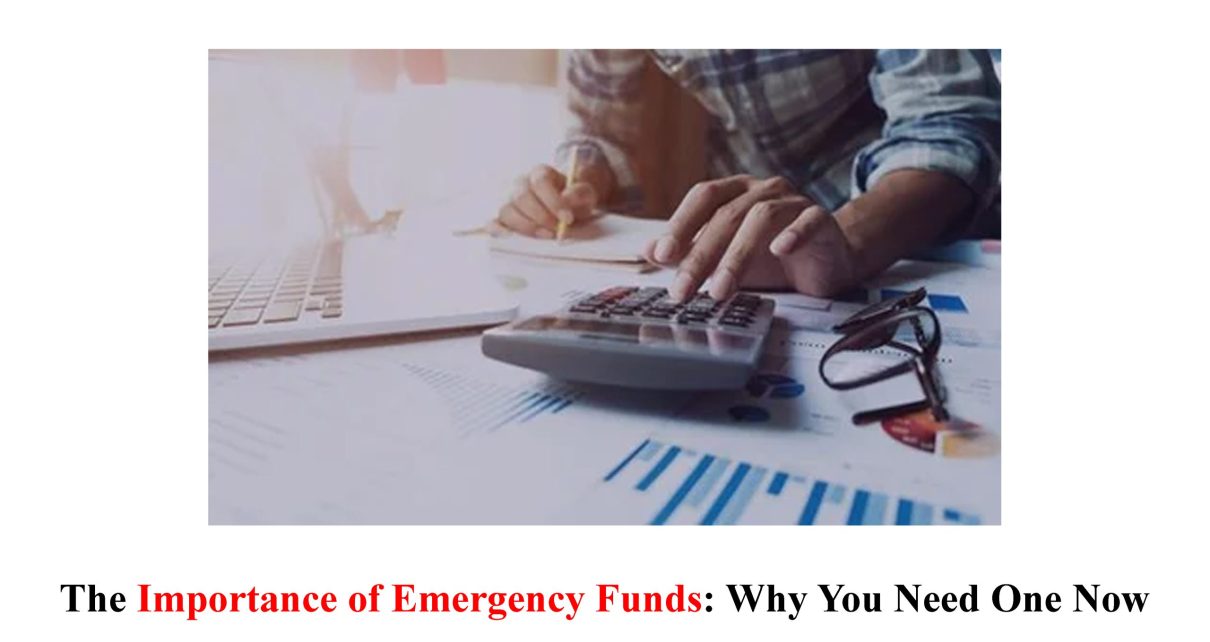Introduction to Emergency Funds
Picture this: your car breaks down on the way to work, or unexpected medical bills pop up out of nowhere. Life is unpredictable, and having an emergency fund can provide a safety net when the unexpected strikes. In this blog post, we will explore the importance of emergency funds and why you need to start building one now. Let’s dive in!
Benefits of Having an Emergency Fund
Having an emergency fund is like having a safety net for life’s unexpected curveballs. It provides peace of mind knowing that you have a financial cushion to fall back on in times of need.
One significant benefit of having an emergency fund is the ability to cover sudden expenses without going into debt or relying on credit cards. This can help you avoid high-interest payments and the stress of accumulating debt.
Emergency funds also offer flexibility during challenging times, such as job loss or medical emergencies. Having savings set aside can give you the freedom to make decisions based on what’s best for your situation, rather than solely on financial constraints.
Moreover, an emergency fund can contribute to long-term financial stability by preventing larger setbacks when unforeseen circumstances arise. By being prepared with savings, you are better equipped to handle any financial storms that come your way.
Establishing and maintaining an emergency fund is a proactive step towards securing your financial well-being and enhancing your overall quality of life.
How Much Money Should You Have in Your Emergency Fund?
When it comes to determining how much money you should have in your emergency fund, there isn’t a one-size-fits-all answer. The amount varies based on individual circumstances such as monthly expenses, family size, and job stability.
A common rule of thumb is to aim for at least 3 to 6 months’ worth of living expenses saved up in your emergency fund. This buffer can provide financial security during unexpected events like medical emergencies or sudden job loss.
Consider factors like the stability of your income sources and any potential large expenses on the horizon when deciding on an appropriate amount for your emergency fund. Having a substantial cushion can offer peace of mind and protection against unforeseen financial challenges that may arise.
Remember, the goal is to create a safety net that can cover essential costs without relying on credit cards or loans during tough times. Start by setting achievable savings goals and gradually building up your emergency fund over time.
Where to Keep Your Emergency Fund?
When it comes to where you should keep your emergency fund, there are a few key considerations to keep in mind. First and foremost, accessibility is crucial. You want to be able to access the funds quickly and easily in case of an emergency.
A high-yield savings account is often recommended for storing your emergency fund. These accounts offer higher interest rates than traditional savings accounts, allowing your money to grow over time while remaining readily available when needed.
Another option is a money market account, which combines some features of both savings and checking accounts. Money market accounts typically provide check-writing capabilities along with competitive interest rates.
Some people prefer keeping their emergency fund in a separate checking account so that they can easily transfer funds as needed without any restrictions or penalties.
The best place to keep your emergency fund will depend on your individual financial goals and preferences. Consider factors like accessibility, liquidity, and potential growth when deciding where to store your rainy day fund.
How to Build an Emergency Fund?
When it comes to building an emergency fund, consistency is key. Start by setting a realistic savings goal that you can commit to each month. Whether it’s $50 or $500, every little bit counts towards your financial security.
Automate your savings by setting up a direct deposit from your paycheck into a separate high-yield savings account dedicated solely to your emergency fund. This way, you won’t even have the chance to spend that money before saving it.
Cut back on unnecessary expenses and redirect those funds towards your emergency fund. Consider bringing lunch from home instead of eating out or cancelling subscriptions you don’t use regularly. Small sacrifices now can lead to big rewards later.
Additionally, consider finding ways to increase your income through side hustles or freelance work. The extra money earned can go directly into boosting your emergency fund faster than relying solely on cutting costs.
Remember, building an emergency fund takes time and discipline but having one in place will provide peace of mind knowing you are financially prepared for unexpected situations that may arise.
Tips for Managing and Using Your Emergency Fund
Managing and using your emergency fund wisely is crucial for financial stability. To ensure you’re prepared for unexpected situations, consider setting up a separate savings account specifically designated as your emergency fund. This separation helps prevent impulsive spending and ensures the money is readily available when needed.
It’s essential to regularly review and update the amount in your emergency fund based on changes in your expenses or income. Aim to have at least three to six months’ worth of living expenses saved up in case of emergencies like job loss or medical bills.
Avoid tapping into your emergency fund for non-urgent expenses. Remember, it’s there to cover unforeseen circumstances, not spontaneous shopping sprees or vacations. Be disciplined in distinguishing between wants and needs to preserve the integrity of your safety net.
Consider automating contributions to your emergency fund each month to make saving easier and consistent. By treating it as a priority rather than an afterthought, you’ll build a strong financial cushion over time.
Conclusion
In times of uncertainty and unexpected expenses, having an emergency fund can provide a safety net for you and your family. It offers peace of mind knowing that you have financial resources to fall back on when the unexpected happens. By prioritizing building and maintaining an emergency fund, you are setting yourself up for financial stability and security in the long run. Start small if you must, but start today. Remember, it’s not a matter of if emergencies will happen but when they will occur. Be prepared by creating your emergency fund now so that you can weather any storm that comes your way with confidence and resilience.



